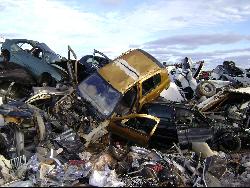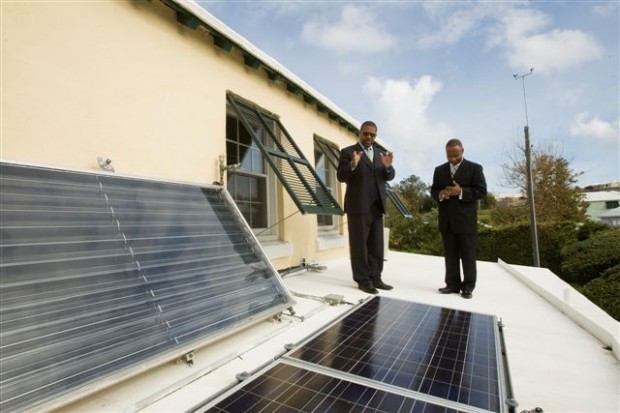- Details
London (CNN) -- Cheaper and lighter compared to its more expensive, cumbersome silicon cousin, plastic photovoltaics (PV) could herald a revolution in the solar power market, according to a UK solar panel expert.
"Plastics are much cheaper to process than silicon. In principle the devices we've been making might be very, very cheap and cover large areas," said David Lidzey from the UK's University of Sheffield.
Click here for full article.
- Details
 Garbage. It's everywhere — even in the middle of the oceans — and it's pure gold for companies like [US based] Waste Management and Republic Services who dominate this $52 billion-a-year industry. From curbside collection by trucks costing $250,000 each, to per-ton tipping fees at landfills, there's money to be made at every point as more than half of the 250 million tons of trash created in the United States each year reaches its final resting place.
Garbage. It's everywhere — even in the middle of the oceans — and it's pure gold for companies like [US based] Waste Management and Republic Services who dominate this $52 billion-a-year industry. From curbside collection by trucks costing $250,000 each, to per-ton tipping fees at landfills, there's money to be made at every point as more than half of the 250 million tons of trash created in the United States each year reaches its final resting place.
- Details
 Currently the top selling electronic devices are e-readers like the Amazon Kindle, the Barnes & Noble Nook, the Sony Reader, and also the Apple iPad, which runs the iBooks application, a free e-book reader program and gateway to Apple's iBookstore. The question is: are e-readers greener than books?
Currently the top selling electronic devices are e-readers like the Amazon Kindle, the Barnes & Noble Nook, the Sony Reader, and also the Apple iPad, which runs the iBooks application, a free e-book reader program and gateway to Apple's iBookstore. The question is: are e-readers greener than books?
- Details
 CNN.com video segments spotlight a broad assortment of the latest environmental ideas and innovations. Here are some of Greenrock's recent picks;
CNN.com video segments spotlight a broad assortment of the latest environmental ideas and innovations. Here are some of Greenrock's recent picks;
- Details
 One Bermuda house isn’t just a home — it is also laboratory for sustainable energy technologies now available on the island.
One Bermuda house isn’t just a home — it is also laboratory for sustainable energy technologies now available on the island.
Minister of Environment, Planning and Infrastructure Strategy Walter Roban this week toured PureNERGY’s renewable energy model cottage in a bid to familiarise himself further with some of the renewable energy options available on the island.
© 2018 Greenrock Bermuda | All Rights Reserved | Web Design & Development

